Ready to learn more?
Get all the details straight to your inbox!
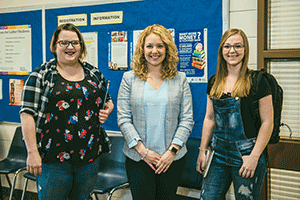
The priority deadline for academic application is March 15. To book a personalized enrolment counselling appointment, contact our Recruitment Office at 1-306-206-2117.

You can book a tour of Luther College, the U of R campus, and our student residence, The Student Village at Luther College, any time throughout the year. Contact our Recruitment Office at 1-306-206-2117.

Wondering where to live? Our student residence, The Student Village at Luther College, is considered a great choice for first-year student accommodation. Individual private rooms mean you can stick to your own schedule and you never have to deal with roommate hassles.

Eating better means studying better. The Luther Cafeteria offers fresh, healthy, nutritious meals seven days a week with a self-serve “all-you-care-to-eat” concept students prefer.
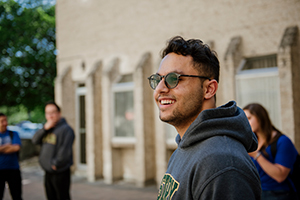
Every degree program at Luther College offers a study abroad option and an optional experiential learning component where you gain real world experience and get paid while going to school!
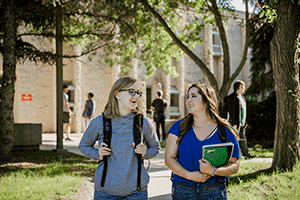
Luther College is a great choice for high school to university transition. Enjoy all the benefits of a larger campus, without feeling lost in the crowd. Our community is full of caring mentors and peers to ensure a positive student experience.
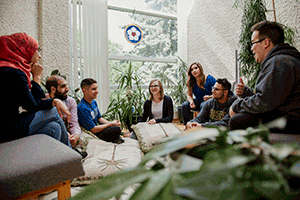
Luther College appeals to students who want to study in a safe, nurturing, and inclusive environment. We welcome students of all faiths, ethnicities, backgrounds, religions, genders, and sexual orientations.
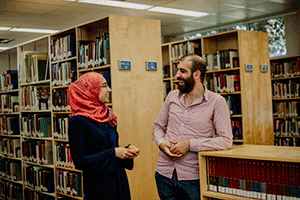
The Luther Library has over 24,000 items in its collection, 5,000 books checked out per year, and 7,000 students who come through its door per month.
Get all the details straight to your inbox!
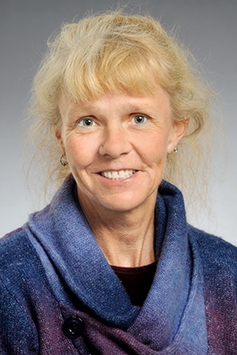 By Dorothy Lane (English)
By Dorothy Lane (English)
February 5, 1991: I am teaching at Royal Military College (RMC) in Kingston, while I complete my doctorate in English at Queen’s University. This job will be remembered as a “baptism by fire” – a class of first-year Engineering officer cadets, mostly male, who are exhausted, immature, away from home for the first time, and openly questioning why they have to take my course. First-year English is a course all cadets must take, and while it is clearly not the top priority for them academically – 51% on an assignment is labelled “overkill” – the classroom will serve as a safe space where they can talk openly about ideas and emotions. I have challenged them with an overly-ambitious reading list throughout the year, but today is distinctive: today, the Prime Minister of Canada (Brian Mulroney) is visiting the campus to make a speech regarding Canada’s participation in its first armed conflict since the Korean War. There is a protest by Queen’s students outside the gates, and I go out to watch my own students and other officer cadets argue with civilian students across the fence. The Prime Minister arrives on the central green in a helicopter, and makes his speech in front of select senior students, administrators, military officials. He announces that Canada will join the coalition in its fight against Iraq, and although none of us hear it, I manage to get a transcript of the speech and read it to my first-year class that afternoon. The class is completely silent, serious, and shocked. We have been discussing the use of persuasive appeals in speech-making, but this speech hits them personally. “Will we have to go to war?” one of them asks me. He is a 17-year-old from Nova Scotia who, along with his fellow students, has chosen RMC because of its free education with the promise of a temporary job after graduation. But these students have never considered the possibility or even the morality of war. We analyze the speech, noting its appeals to history and authority: “We all favour peace over war; but that is a sentiment – not a policy – when dealing with aggression.”
October 27, 2014: The experience confirms my principles and specialization in teaching and scholarship: viewing students – even those with radically-different backgrounds and political perspectives – as whole persons; connecting literary and non-literary texts with the tangible world of current events and people’s lives. I draw on Mulroney’s speech when I teach at the University of British Columbia for a year, and subsequently when I take up a position here at Luther College. However, it’s increasingly difficult to impress upon my students the importance of that declaration of war in 1991. It is not until late October 2014, when a radicalized man opens fire on a member of the reserve outside Ottawa’s war memorial – an event with national impact – that I can again draw on political speeches. In this case, it is a speech by Prime Minister Stephen Harper, emphasizing Canada’s commitment to the “war on terrorism” that leads to limitations on privacy and confidentiality. Two of my first-year students are in the reserves, and while they have little desire to enter armed combat, they know they may be required to do so. These are the moments of serendipity, when teaching overlaps with real-world experience. In such moments, I drop my plans for the class and do what I did in 1991: grab a copy of the report or speech, bring it to class, and analyze it. I’m not sure if my students from RMC, now in their forties, remember that day, but it taught me a lesson about the relevance of English that I continue to draw on twenty-five years later.